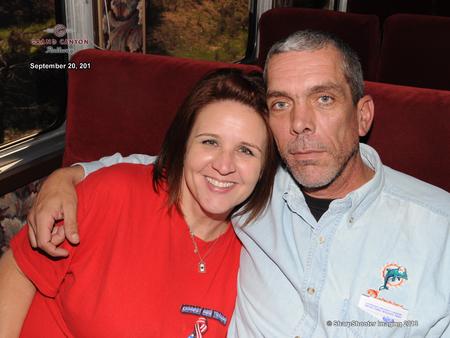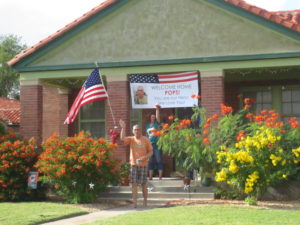Valentine’s Day is coming, and it gives us the gift of a unique opportunity to appreciate our loved ones. This time is especially meaningful for the millions of military couples in our country who face the hardships, fears and stress associated with deployment, frequent moves, communication blackouts, mental health issues, and reintegration. Many service members are spending this day away from their loved one, and others are facing the harsh reality that although the service member is home, things are not the way they used to be.
Kim Darden, a Red Cross volunteer and military spouse explains,
I believe Valentine’s Day is more special for military couples when the couples are able to spend it together; they are in the same time zone, same continent, same country. Military training, deployments, schooling does not stop because of Valentine’s Day or any other holidays. As a military wife, I treasure the quality time we can spend together as a couple on holidays; the main reason being we do not know where we will be for the next year on that holiday.”
Here are some harsh truths about military relationships:
- Male combat veterans are 62% more likely to have at least one failed marriage, compared to their civilian counterparts.
- 70% of couples where one spouse has been diagnosed with PTSD report marital distress.
- Veterans with PTSD are more likely to be divorced or considering divorce, to engage in partner violence, and to have problems with their children.
The reintegration journey is a long one, but the Red Cross is there to help along the way. Red Cross Reconnection Workshops are small-group, individual-focused events led by licensed mental health professionals to help families learn how to build healthier relationships after a service member returns home.
Kim knows firsthand how important these workshops are:
The Reconnection Workshops has helped us build a stronger relationship even after 25 years of marriage. The ways the workshops has changed us is how we communicate more effectively to each other. We have learned how to listen and hear what the other one is trying to say. Today, when one of us wants to discuss something that is important to us, we will turn off all outside distractions such as TV and cell phones to listen and discuss.”
The workshops teach important lessons, from which all couples can benefit. For example:
- Patience and Respect: Distance and a lack of communication, especially during deployments, can lead couples to feel less intimately connected. This can impact trust, as well as emotional and physical closeness. Patience and respect are required for couples to communicate effectively.
- Listening: It can be very frustrating to watch someone you love struggle with symptoms related to war stress, or other stress, depression, PTSD or TBI. When helping someone heal, be patient, be honest, be willing to listen and don’t forget to take care of yourself.
- Acceptance: Individuals suffering from depression often have low self-esteem, and it may not be unusual for them to show negative feelings, including anger, when communicating. Therefore, it is important to accept people as they are. Help them focus on the positive, providing successful experiences that elicit praise.
- Validation: Unanticipated changes take service members, couples and families by surprise. It may be hard for each person to fully understand what the other has been through and how this has changed them. Acknowledgement or validation of each other’s sacrifices can help decrease anger.
- Acknowledge Change: All relationships are changed by a loved one’s deployment. It is easy to plan to pick things up just as they were before deployment, and this often leads to disappointment and frustration as everyone has changed. Develop and practice methods to reduce stress to keep this from moving into anger.
- Empathy: The ability to see things from another person’s viewpoint is an important means of managing anger. The development of empathy can aid in building better relationships with your partner.
Kim explains,
The Reconnection Workshops are a wonderful learning experience, which [military] couples or families members should take advantage of… For military couples celebrating Valentine’s Day together, treasure those moments and make lots of memories. For those military couples celebrating Valentine’s Day apart, do something special for your loved one that they will remember and it will make their day.”
Even if your relationship is currently problematic, having a romantic date can reignite happy memories and feelings. Take this Valentine’s Day to celebrate each other, family, and your new life moving forward. For Kim and her husband, they will be celebrating low-key. “This year it will be just a quiet night at home with my husband, we will cook dinner together, and watch a movie. Last year he was deployed, so this Valentine’s Day we want to just be together at home.”
For more information on Reconnection Workshops, go to redcross.org/military, contact your local chapter, or email Reconnection@redcross.org.


